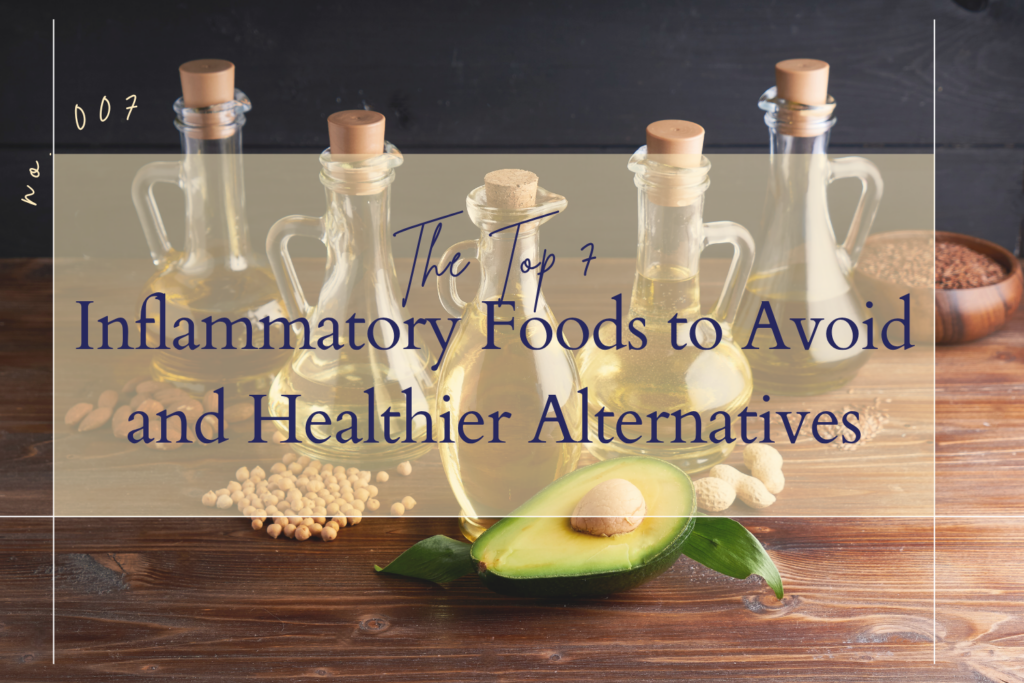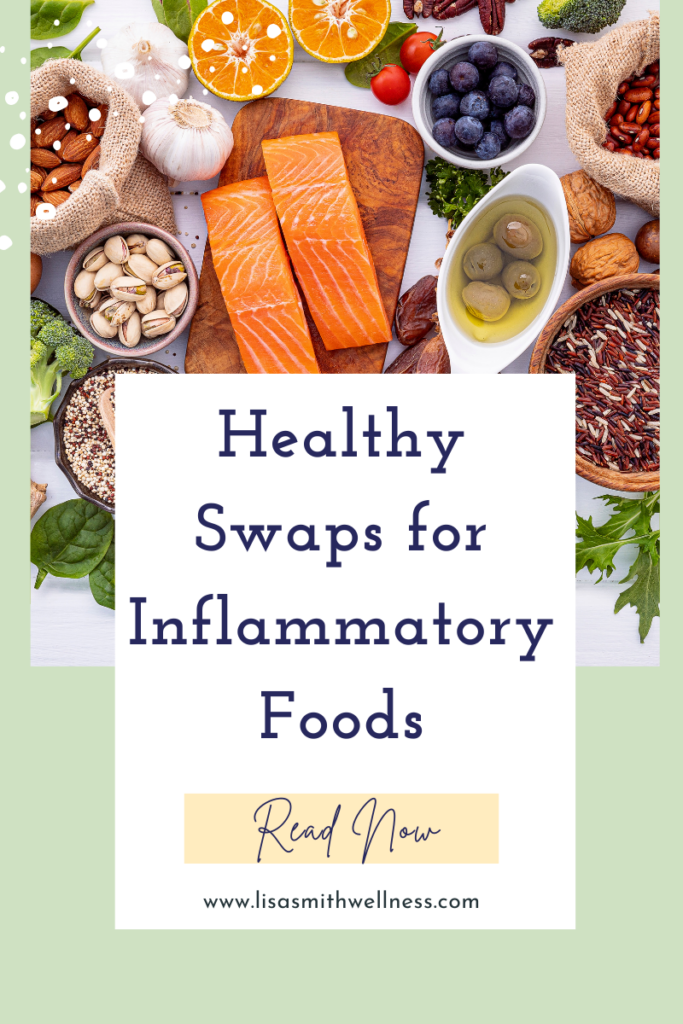Hi there! I’m Lisa Smith, and today we’re diving into a topic that sparks a lot of curiosity and questions: inflammation. Questions like, “What is chronic inflammation?”, “What are its symptoms?” and “How do I get rid of it?” are common, and today, we’re addressing these by exploring the role food plays in inflammation.
This post contains affiliate links, meaning I make a small commission at no extra cost to you. Thank you for helping me serve up helpful content to you weekly!
Inflammation, while a natural part of our immune response, can become a persistent problem when it turns chronic. This can trigger chronic pain and act as a root cause of various chronic diseases. Let’s explore the top inflammatory foods and how to make better choices for our health.

Understanding Inflammatory Foods
It’s clear that our diet plays a significant role in the inflammation levels our bodies experience. Research shows that altering dietary habits can impact not just those with autoimmune conditions, but everyone. By reducing or eliminating the top inflammatory foods, we can lower the risk of serious health
issues like heart disease, diabetes, and even cancer.
Top Inflammatory Foods to Avoid
- Vegetable Oils: Vegetable oils, often perceived as harmless, are actually highly processed. Known as RBD oils (refined, bleached, deodorized), they’re high in Omega-6 fatty acids which, when imbalanced with Omega-3s, drive inflammation.
Anti-Inflammatory Alternatives: Extra virgin olive oil, coconut oil, avocado oil, organic
butter, and organic ghee. - Ultra-Processed Foods: Formerly known as “junk food,” these include cookies, chips, candies, and sodas. These foods are engineered to be appealing and addictive, yet they disrupt our body’s natural processes.
Anti-Inflammatory Alternatives: These homemade energy bites are a great snack! - Refined Carbohydrates: Found in white pasta, white bread, and sugary snacks, refined carbs have a high glycemic index, contributing to higher blood sugar levels and increased inflammation.
Anti-Inflammatory Alternatives: Opt for complex carbohydrates like brown rice and quinoa. - Artificial Sweeteners: Present in many diet beverages and snacks, artificial sweeteners are linked to gut microbiome disruption and can cause inflammation in the liver and brain.
Anti-Inflammatory Alternatives: Stevia and monk fruit. - Processed Meats: High in nitrates, processed meats like bacon, sausage, and deli meats are associated with higher inflammation markers and classified as potential carcinogens.
Anti-Inflammatory Alternatives: Grass-fed beef, pastured chicken, wild-caught fish - Trans Fats: These lab-manipulated fats are found in many fried and packaged foods, exacerbating inflammation and elevating cholesterol levels while undermining metabolic health. Avoid opting for advertised “trans-fat free” options which are highly inflammatory seed oils (remember those?).
Anti-Inflammatory Alternatives: Extra virgin olive oil, coconut oil, avocado oil, organic butter, and organic ghee. - Alcohol:While moderate red wine can be beneficial due to resveratrol, excessive alcohol is linked to liver inflammation, gut dysbiosis, and systemic inflammation, triggering not only digestive issues but also mood fluctuations and energy dips.
Anti-Inflammatory Alternatives: If you are going to have a drink, opt for wines without sulfites, additives and preservatives. This one is my favorite. Avoid all beer and liquor.
Get even more inflammation tips sent straight to your inbox!
Strategies to Reduce Inflammation
To combat inflammation, adopt an anti-inflammatory diet rich in plants, nuts, seeds, healthy fats, and Omega-3 fatty acids from fish like salmon and sardines. Stay hydrated by aiming for at least 64 ounces of filtered water daily, engage in regular exercise, and practice stress-reduction techniques such as deep breathing or meditation.
Additionally, supplements like specialized pro-resolving mediators (SPMs), Boswellia, curcumin, Vitamin D, and magnesium can further aid in reducing inflammation. Each supplement offers unique benefits, working synergistically to support immune function and promote overall health.
Exploring Gluten and Dairy
Gluten and dairy can be inflammatory, especially for those with sensitivities or specific processing issues. Consider opting for organic gluten products and exploring alternatives like A2 or goat’s milk for dairy. Identifying your body’s
unique responses to these foods can guide more personalized dietary choices.
Pin this for Later

In conclusion, while acute inflammation is necessary for healing, chronic inflammation poses serious health risks. By making informed dietary choices and incorporating healthy habits, you can significantly reduce inflammation and enhance your well-being, ultimately leading to a more vibrant, balanced life.
Ready for more?
Here are some podcast episodes that take you deeper.
I hope you found this guide helpful! Feel free to share your thoughts, and join
me next time on the Pretty Well Blog. Until then, stay Pretty Well!
+ view comments . . .